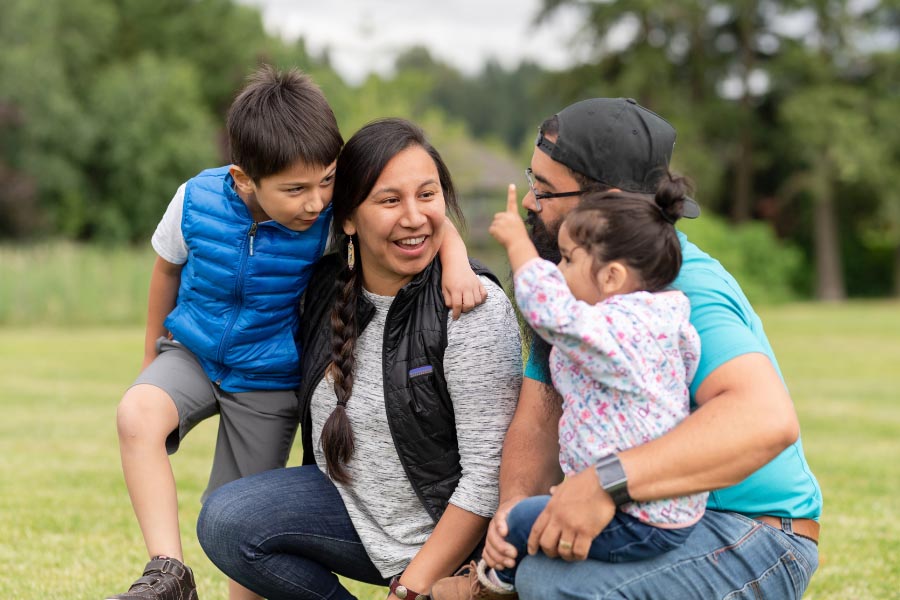Nebraska Connecting Families Project

The Nebraska Connecting Families project stems from Nebraska’s Department of Health and Human Services Title V program’s 2020 Needs Assessment.
Behavioral and mental health in school was identified as a priority. The Munroe-Meyer Institute created a statewide Steering Committee composed of families with children who needed to access mental health resources, representatives from the Nebraska Department of Education, Nebraska DHHS Title V, Medicaid and Behavioral Health programs, Educational Service Units, individual school districts, mental health providers and advocacy organizations.
Goals
- Identify existing mental/behavioral health resources with emphasis on connections to educational settings.
- Identify gaps in resources.
- Identify how we can address gaps in resources.
- Identify how caregivers and professionals access existing resources.
- Identify how we can improve accessibility and engagement of resources.
- Identify training/education or marketing that needs to be implemented for caregivers and professionals to improve access and engagement with resources.
- Identify steps for funding, implementing and sustaining plans to address gaps in resources, improve caregiver access and engagement with resources, and develop and implement training/education or marketing for caregivers and professionals.
Current Activities
In the project extension from July 2025 to March 2026, NCF is currently focusing on identifying training and education needs for school personnel, mental health and other community providers, and families. The proposed outcomes for this extension include:
- Development of a didactic training program for an individual school or school district/ESU on school/mental health collaboration with an emphasis on engaging families in accessing and participating in services or connecting with community resources.
- Implement a pilot didactic training with at least one school or school district/ESU.
- Design a virtual consultative technical assistance program to include case consultation for school personnel on challenges and successes for engaging families and connecting families to mental health resources and services, as well as an on-going community of practice element on school/community collaboration and family engagement for mental health.
- Identify steps to implement technical assistance, funding and sustainability needs, and additional collaborators or partners.
To accomplish these outcomes, we will utilize the expertise of our faculty in MMI Psychology who created a foundation of training in school-based mental health through their work at the Mid-America Mental Health Technology Transfer Center funded by the Substance Abuse and Mental Health Services Administration over the past 5 years. While the MHTTC is no longer funded, the work in training and technical assistance for school-based mental health continues.
We will also continue to utilize the expertise of our existing NCF’s state-wide Steering Committee. It consists of family representatives as well as representatives from state agencies, school districts, mental health organizations and others with expertise in education and mental health issues. The Steering Committee will be responsible for reviewing and providing input on all materials and instructional processes designed during this extension.
Steering Committee
- Irene Britt - Independence Rising, Executive Director, Scottsbluff
- Tasha Conley - Charles Drew Health Center, Director of Nursing
- Scott Eckman - Nebraska Dept of Education, NE MTSS, NPBIS
- Julia Hebenstreit - Independent Contractor, Mental and Behavioral Health
- Lisa Hobza - PTI-NE, F2F Health Information Center
- Dusk Junker - Parent with lived experience
- Russell Koos - Youth & Crisis Program Specialist, Division of Behavioral Health, Nebraska DHHS
- Brian McKevitt - UNO, School Psychology Faculty
- Mandy Plog - Hemingford Public Schools, Director of Special Education
- Jen Pollock - Ralston Public Schools, Director of Student Services
- Nichole Rogert - Parent with lived experience
- Jewel Schifferns - Children’s Nebraska, LCSW, School Social Work Coordinator
- Sandy “Macky” Scott - Indigucation
- Jessica Seberger - NE DHHS Program Manager, Title V
- Brian Welch - Nebraska Director, National Center for Families Learning
- Madison Wurtele - Disability Rights Nebraska, Staff Attorney
- Jean Anderson - ESU 10, Director of Special Education
- Amy Bonn - Parent, special education lawyer, Arc of NE Board
- Linda Henningsen - NE DHHS Division of BH, SOC Program Specialist
- Matt McNiff - ESU 5, Director of Special Education, Arc of NE Board
- Michelle Nunemaker - NE DHHS Division of Behavioral Health, SOC Admin
- Anitra Warrior - Morning Star Counseling, Licensed Psychologist
MMI Team
- Mark Shriver - Project Co-Director
- Sarah Swanson - Project Co-Director Year 1 and Community Outreach, Director of Family Care Enhancement Project Year 2
- Candi Koenig - Project Manager
- Erika Franta - Community Outreach Year 1 and Project Co-Director, Year 2
- Mindy Chadwell - Community Outreach Year 1 and Project Co-Director, Year 2
- Graciela Sharif - Community Outreach
- Alex Lane - Media Specialist
- Kaitlyn Young - Community Outreach; School-based Mental Health Services
- Gina Kunz - Community Outreach; Family Engagement Centers
- Emily Costello - Project Assistant
- Maribel Garcia - Project Support
- Allison Jadoobirsingh - Program Evaluator
- Nikki Hackendahl - Media Specialist
- Mark Smith - Community Outreach
- Zoe Timberlake - Project Assistant
View the 2025 Caregiver Focus Group Report
View the 2025 Final Project Report
Contact Us
Maribel Garcia
Project Support, Office Associate II
Email | 402-559-6483
